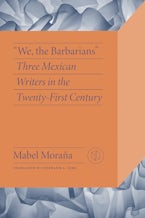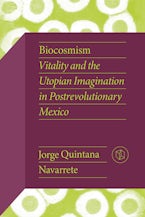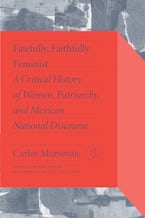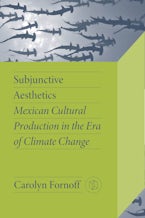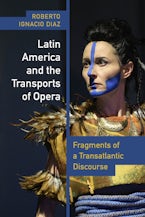- Home
- Nicaragua and the Politics of Utopia

Nicaragua and the Politics of Utopia
Development and Culture in the Modern State
The history of modern Nicaragua is populated with leaders promising a new and better day. Inevitably, as Nicaragua and the Politics of Utopia demonstrates, reality casts a shadow and the community must look to the next leader. As an impoverished state, second only to Haiti in the Americas, Nicaragua has been the scene of cyclical attempts and failures at modern development. Author Daniel Chavez investigates the cultural and ideological bases of what he identifies as the three decisive movements of social reinvention in Nicaragua: the regimes of the Somoza family of much of the early to mid-twentieth century; the governments of the Sandinista party; and the present-day struggle to adapt to the global market economy.
For each era, Chavez reveals the ways Nicaraguan popular culture adapted and interpreted the new political order, shaping, critiquing, or amplifying the regime's message of stability and prosperity for the people. These tactics of interpretation, otherwise known as meaning-making, became all-important for the Nicaraguan people, as they opposed the autocracy of Somocismo, or complemented the Sandinistas, or struggled to find their place in the Neoliberal era. In every case, Chavez shows the reflective nature of cultural production and its pursuit of utopian idealism.
For each era, Chavez reveals the ways Nicaraguan popular culture adapted and interpreted the new political order, shaping, critiquing, or amplifying the regime's message of stability and prosperity for the people. These tactics of interpretation, otherwise known as meaning-making, became all-important for the Nicaraguan people, as they opposed the autocracy of Somocismo, or complemented the Sandinistas, or struggled to find their place in the Neoliberal era. In every case, Chavez shows the reflective nature of cultural production and its pursuit of utopian idealism.
Daniel Chavez is Assistant Professor of Spanish at the University of New Hampshire.
"Beyond Central Americanists, this book is relevant for scholars across the humanities and social sciences concerned with the study of 'practices of meaning-making' in any context. This book is part of the general shift across disciplines and its unique contribution is to show how definitions of 'utopia' lie at the center of such meaning-making practices in Nicaragua, especially with regard to notions of development. In particular, the author shows how there are both conservative and left-liberal, even liberatory, utopias at play."
--David Pedersen, author of American Value: Migrants, Money, and Meaning in El Salvador and the United States
"Highly original . . . Chávez carefully dissects official speeches and constitutional texts and expertly elucidates their literary and discursive origins."
--Richard Feinberg, Foreign Affairs
"The most important book on Nicaragua published in the United States in recent years."
--Nicasio Urbina, Confidencial

